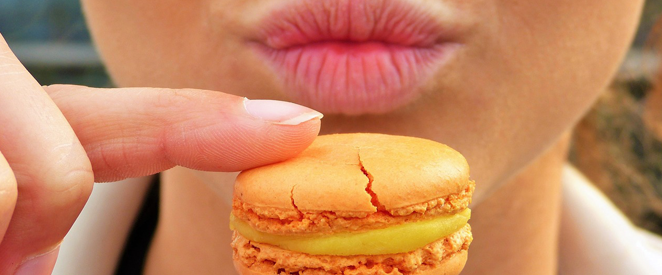Amo esse site porque aprendo muitas coisa que estão me ajudando no meu trabalho. Obrigado Ana pela dedicação com que produz cada conteúdo. God continue blessing you!
Obrigada, Lucas! Feliz em saber que ajuda :)
I’ve a passion for work.
I’m passionate about read books.
Now I have a craving for brazilian rice and beans.
Please, if I wrote something wrong, let me know.
Thanks.
Cristiano, dê uma olhada no post novamente pois eu coloquei mais coisa sobre o Craving!
Hi Aaron – thanks for bringing that to my attention. I’m gonna edit my comment to clarify that that particular sentence with “crave” has sort of a different meaning.
And, you’d be surprised at how often people actually write “I’ve this or that” on Internet forums or other online places! Take a look here, for an example.
I guess online writing is becoming more and more informal – it’s like everyday speech is being transcribed. I am pretty informal myself (see the title of this post – “Eu tô” is a shortened form of “Eu estou” <—most Brazilians don’t say it like that)
Glad you like the blog! I don’t have anything similar in Portuguese, but I recommend this to you:
http://www.brazilianpodclass.com/blog/
(it’s made by a Brazilian guy)
In my experience, the best and easiest way to pick up a new language and actually make decent progress in fluency is through listening to stuff you comprehend, as much as you can, and frequently…
I haven’t listened to his podcast, but it’s the only Braz PT podcast I know of… so it’s worth a try!
Do you live in the US? Is there a Brazilian community where you live?
Ana Luiza,
That’s a good point! I’ve never really thought about that. I suppose it’s said so quickly that it kind of sounds like “I’ve a dog”, or minimum it would sound like “I ‘ave a dog” ![]() Although it’d never be written out that way.
Although it’d never be written out that way.
The craving English thing could also be said I suppose if the context of the joke were correct…this I would probably avoid though as a not native speaker. In my study of Portuguese and speaking with friends and family I’ve come to realize that there are certain things that I could say, but that sound weird since I’m not a native speaker and people think that it’s me being a goofy American and trying to figure out Portuguese—and that’s true! I am an American trying to figure out Portuguese ![]() However, were I Brazilian saying the exact same thing in Portuguese I could have gotten by with it. Saying “crave” here might be taken as kind of the same thing, people would certainly understand what you were saying, but you might get a lot of frowns (I personally have gotten tons of frowns in my Portuguese speaking!)
However, were I Brazilian saying the exact same thing in Portuguese I could have gotten by with it. Saying “crave” here might be taken as kind of the same thing, people would certainly understand what you were saying, but you might get a lot of frowns (I personally have gotten tons of frowns in my Portuguese speaking!)
By the way, this is an excellent blog! Do you have anything similar in Portuguese?
Aaron – thanks for your comment. Yeah, “I don’t crave learning English” isn’t very common… but it could be said in a jokey way, for example.
And I’m pretty sure I hear stuff like “I’ve” a dog, etc. very often, from Americans – everyday spoken language. Maybe if the person were to write down that thought, he/she would write “I have” but in fast speech it often comes out as “I’ve”.
Just a quick thought on this post:
Hi Santix, here you go:
I’ve a passion for mountain biking
I’m passionate about books
I like/love this page, but I don’t crave learning English
Que tal?
The specific sentence: “I’ve a passion for mountain biking” may be appropriate in some English speaking countries, but is not very common in the US. I think it’s more common in British English maybe—I’m not sure. But just in that specific context of course, we use the contraction “I’ve” all the time. If British English is your goal then just ignore this comment because I believe it is correct for that.
Also, the following sentence: “I like/love this page, but I don’t crave learning English” would probably sound better as “I like/love this page, but/even though I’m not passionate about/crazy about learning English” using crave here sounds a little out of place, it makes it sound really intense actually, almost like it’s a physical or deeply emotional need or something.
Hi guys!
Let me try too make sentences with passionte about, passion for, crave and craving
I’m passionate about finding and discovering new things.
I have a passion for finding and discovering new things.
Thomas haas a strang habbit, he has shower craving all the time.
Bill usually craves play online games.
Oi Ana, eu só tenho dúvida das situações de se usar crave e craving.
Esse site é show de bola!!!
Bye
Hi José and Fernanda, VERY glad to know you guys are enjoying the tips and getting something out of them (tirando algum benefício delas) ![]()
i loved this post! i had a craving for fruits and for learning english! I think that Ana Luiza is the best teacher. i get on my knees to thanks the fact that she is passionate about teaching english! kisses teacher!
Muito Boa essa lição. Iloved it.Thank you Ana Luiza.
Ricardo, “I feel like having a soda now” é perfeitamente correto. Só não tem necessariamente o mesmo sentido dos termos apresentados na dica – dê uma olhada lá.
eu posso usar o “feel like”?
i’m feel like having a soda now.
aguardo seu retorno.
Ferdinando, rs… ![]() Enjoy the website!
Enjoy the website!
Hi Paulo! You may be right, I would not write “I’ve a passion etc etc” on an exam.
But in daily language people say that a lot. Em “I’ve a passion”, eu estou transcrevendo a maneira encurtada, abreviada da fala informal (como eu fiz em português no título desse post)
Em escrita *informal*, especialmente online, vc também vê I’ve como present simple.
Hi Ana!
In the answer to Santix, you wrote ” I’ve a passion for mountain biking”
Is it correct to use “I’ve” in the simple present? shouldn’t you have written “I have”?
I LOVE YOU!
Hi Santix, here you go:
I’ve a passion for mountain biking
I’m passionate about books
I like/love this page, but I don’t crave learning English
Obs.: “I don’t crave learning English” é uma construção correta, mas soa um pouco estranha (meio intensa)
Seria mais comum dizer “I’m not crazy about learning English”. Crave é um desejo intenso (não é comum ter isso com aprendizado de língua)
I’m passion for montain bike.
I’ve passionate for book’s.
I’ve passionate for this page,but I don’t crave for not know much English.
These sentences are correct?
Hey Lislaine, that’s great… You’re gonna have a blast!
Marco
(1) is great
(2) can be: Americans aren’t passionate about soccer or Americans don’t have a passion for soccer
Hi Ana,
Could you see to me this sentences?
1) Brazilians are passionate about soccer.
2) Americans haven’t passionate for soccer.
or
Americans didn’t have passionate for soccer.
Hey,
Thanks for the explanation :D
I’m passionate about reading, that’s why I’m gonna start up a blog about it!
And I hace a craving for chocolate like everyday. (yep, i’m chocaholic :x)
Have a nice week!
xoxo
ok..got it.
so I love my children and I crave sweets from time to time although I’m not crazy about them.
Thanks, ![]()
Hi everyone – fiz um update no post para explicar melhor o sentido de “passionate about”.
Thanks for commenting ![]()
I have a passion for music & the English language.
I’m passionate about my children.
And from time to time I crave sweets, although I’m not passionate about them.
Nice post,
Ira Loiola
Muitíssimo interessante. Devidamente registrado.
Thank you, Ana L.!!
Muito bom esse site! I loved it!



